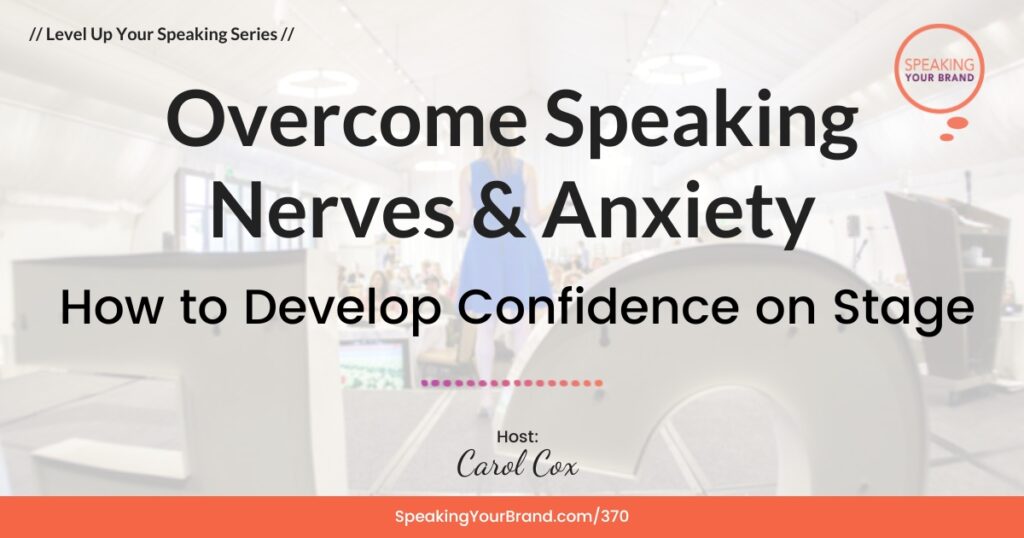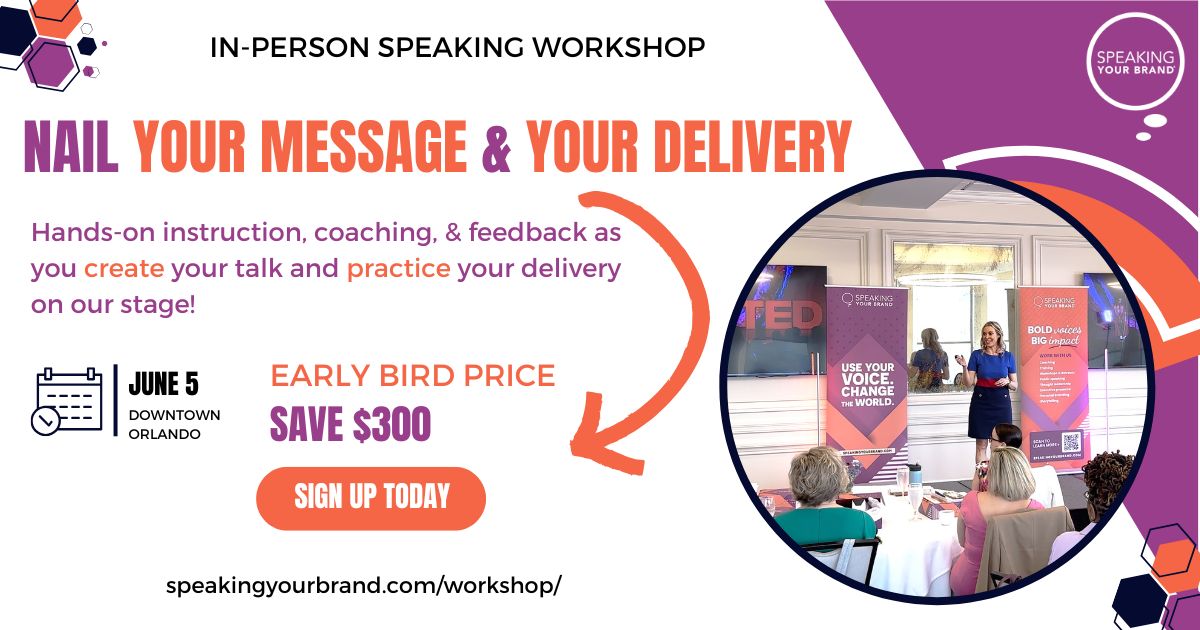Subscribe to the podcast!
Let me take you behind the scenes for a moment.
I’ve spoken on hundreds of stages, appeared live on TV as a political analyst, and taught workshops to entrepreneurs and leaders for years. And still… I get nervous.
Sometimes really nervous.
In fact, I had one of my worst-ever speaking experiences at a TEDxWomen event — and I share the full story in this podcast episode because I want you to know: even seasoned speakers can get overwhelmed. And more importantly, we can recover.
Whether you’re speaking in front of 500 people or on a webinar with 15, your body and brain can react the same way — with a flood of nerves, anxiety, and pressure.
The good news? You can learn to manage it.
Let’s talk about why it happens — and exactly what to do before, during, and after your speaking engagements to calm your nerves and increase your confidence.
Why Do We Get So Nervous?
Our bodies are wired to protect us from danger — and unfortunately, they can’t distinguish between a saber-toothed tiger and a ballroom full of conference attendees.
When we stand alone on stage, we feel vulnerable. Our nervous system kicks in: heart pounding, sweaty palms, butterflies, and yes… even dry mouth.
Once I understood this physiological response — and that my body was just trying to help — I stopped fighting it. Instead, I learned to work with my body to channel those nerves into energy and presence.
The 3 Reasons You Might Be Nervous (And What To Do About Them)
1. You’re Not Prepared
Even if you know your topic, scrambling last-minute or worrying about tech can spike your anxiety.
What to do:
-
Start preparing earlier than you think you need to.
-
Know your talk inside and out — and practice without your slides.
-
Ask the event organizer details like: how many people will be there, what the room setup is, and who’s handling the AV.
-
Create a signature talk you can adapt for different events so you’re not starting from scratch every time.
2. It’s Something New
Maybe it’s your first keynote. Your first live TV interview. Or your first time being introduced as “the expert.”
That was me back in 2005, sitting across from a congressman and seasoned journalists during my first ever TV appearance. I was terrified, but I made it through. And over time, as I got more reps, it got easier.
What to do:
-
Put yourself in new speaking situations often — podcast interviews, virtual presentations, local events.
-
Practice in low-stakes environments to build muscle memory.
-
Take every opportunity to speak, even if it’s not “perfect.”
3. You’re Putting Too Much Pressure on Yourself
This was the culprit behind my worst speaking experience. I was giving a TEDx talk in front of 50 women, many of whom I knew, and I completely shut down. Cotton mouth. Panic. I had to stop midway through for a drink of water. And I was mortified.
I wanted to be perfect. I felt like I had to be perfect — because I was the speaking coach.
What to do:
-
Remind yourself that you don’t need to be flawless to be impactful.
-
Take the pressure off by connecting with the audience before you go on stage.
-
Focus on serving your audience, not performing for them.
Action Items: What You Can Do to Calm Speaking Anxiety
Here’s a list of practical things you can try — before, during, and after your talk — to reduce anxiety and channel your nerves in a healthy way.
In the Weeks Before Your Talk:
-
Practice out loud — ideally in front of a trusted group or live audience.
-
Visualize yourself on stage: close your eyes and imagine delivering your talk with ease and flow.
-
Take an improv class — not to be funny, but to get out of your head and into your body.
-
Exercise regularly and hydrate to help your nervous system regulate itself.
-
Use calming techniques like meditation or deep breathing to train your body to stay grounded.
Right Before You Speak:
-
Talk to people in the audience — even just saying hello and shaking hands releases oxytocin, the connection hormone.
-
Do power poses or jumping jacks to channel adrenaline and cortisol.
-
Stick to your regular routine — if you usually drink coffee, do it. If you don’t, skip it.
-
Ask a question as your opening instead of jumping straight into your story — it takes the spotlight off of you and warms up the room.
After You Speak:
-
Debrief with yourself or a coach — what went well? What could improve?
-
Celebrate what you did, not how perfect it was.
-
Keep going. Don’t let one “off” talk derail you. The only way out is through.
You Don’t Have to Do This Alone
I’m sharing all of this because I want you to know: nerves are normal. You don’t need to get rid of them — just learn how to work with them.
If you’re ready to practice your talk and gain more confidence, I’d love for you to join us at our 1-day in-person Speaking Workshop in Orlando.








